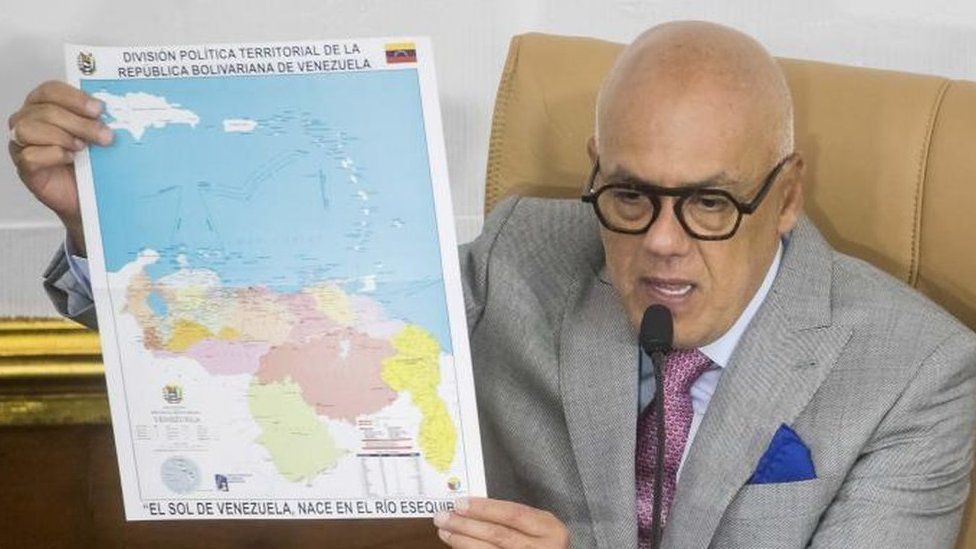-

-
-
Loading

Loading

The Venezuelan government has ordered the arrest of several politicians who are closely associated with opposition presidential candidate María Corina Machado. Attorney-General Tarek William Saab accused them of trying to undermine the recent referendum on Venezuela's claim to the disputed Essequibo region. The majority of voters supported the government's position on Essequibo, but concerns have been raised about the turnout. Many analysts see the referendum as a strategic move by President Nicolás Maduro to generate nationalistic sentiment and divert attention from calls for free and fair elections. The situation has escalated tensions not only between Venezuela and Guyana, which has control over the disputed area, but also between the government and its critics. Saab, an ally of President Maduro, declared that arrest warrants had been issued for 14 individuals linked to the opposition. He alleged that these individuals were part of a "transnational conspiracy" financed by US oil giant Exxon Mobil to undermine Venezuela's claim to Essequibo. The region, which is rich in oil, is currently under the administration of neighboring Guyana and constitutes two-thirds of its total land area. It is home to 125,000 of Guyana's 800,000 inhabitants. Venezuela has long maintained that a 1899 decision by an international tribunal favoring British Guiana (now Guyana) was unfair. While Guyana has taken the matter to the International Court of Justice, Venezuela has not acknowledged the court's jurisdiction. The referendum posed five questions to Venezuelan voters, including whether they agreed with the government's rejection of the ICJ's authority over the Essequibo issue. Electoral authorities reported that over 95% of voters supported both the government's stance on the matter and President Maduro's plan to establish a Venezuelan state in the contested area. The head of the National Electoral Council claimed that over 10.4 million Venezuelans, representing more than 50% of eligible voters, participated in the vote. However, critics have cast doubt on the figures, pointing out that polling stations appeared unusually quiet for such a significant turnout. Analysts believe that Saab's actions, as a close ally of President Maduro, are aimed at silencing those who have portrayed the referendum as anything other than a resounding victory for the government. Among those targeted by the arrest warrants are three members of Machado's team, who was recently selected as the opposition's unified candidate for next year's presidential election. Additionally, warrants have been issued for key opposition politicians living in exile, including Juan Guaidó, Julio Borges, David Smolanski, Carlos Vecchio, and Leopoldo López. Saab accused these individuals of being involved in a conspiracy to undermine the Venezuelan people's struggle for Essequibo, allegedly financed through money laundered by international organizations and foreign companies such as Exxon Mobil. The actions taken by Venezuela have raised concerns among countries in the Western Hemisphere. Brazil has announced the deployment of troops to its border with Venezuela, and a spokesman for the US National Security Council described the situation as "concerning." The US is closely monitoring the developments, according to the spokesman.